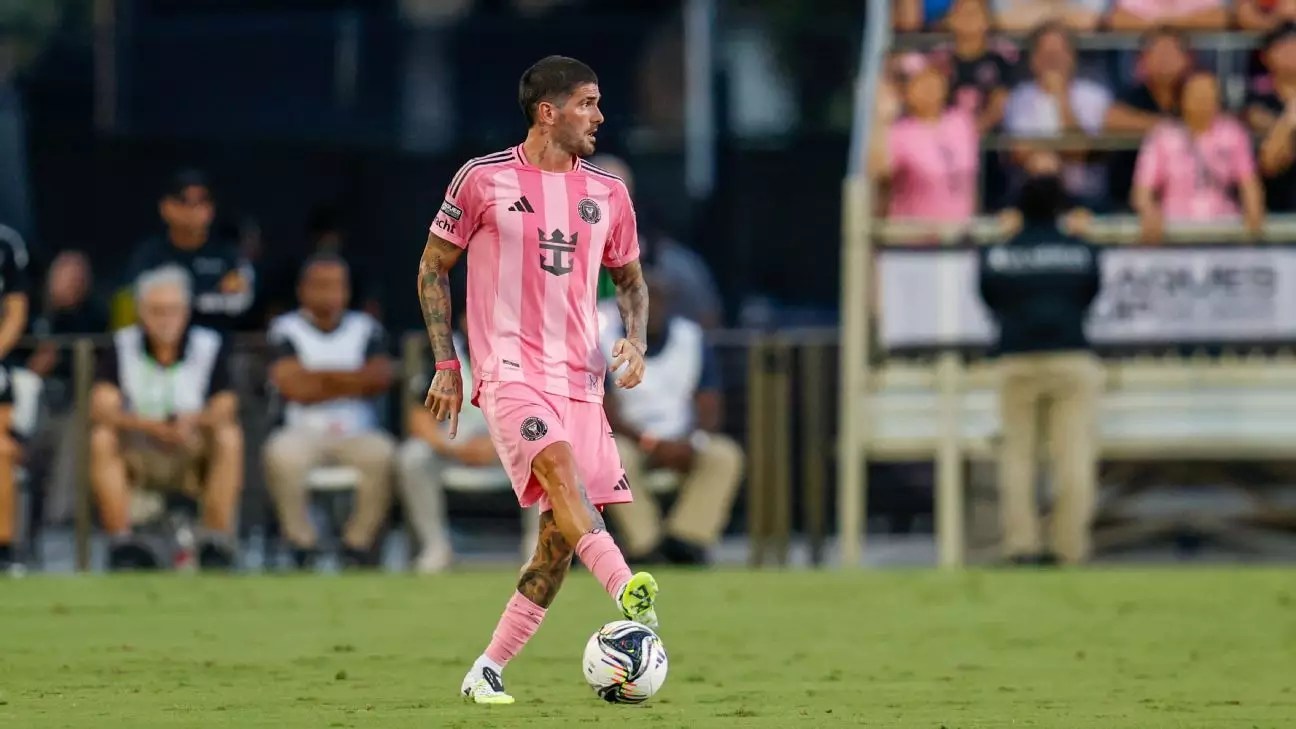The signing of Rodrigo De Paul by Inter Miami is more than just a routine player transfer—it marks a pivotal shift in Major League Soccer’s quest for global prominence. Often overshadowed by Europe’s football giants, MLS has recently taken strategic strides to elevate its status, and acquiring a player of De Paul’s caliber exemplifies this ambition. The collaboration isn’t merely about skill; it reflects a vision of assembling a competitive, star-studded squad capable of challenging conventional paradigms of football excellence. His move signifies that MLS clubs are increasingly becoming attractive destinations for high-caliber talent, especially when the goal aligns with legendary figures like Lionel Messi. The partnership isn’t just about one player; it symbolizes MLS’s evolution into a league that can tempt international stars with competitive team structures and ambitious projects.
The Messi Factor: Transforming the Dynamic of American Football
Lionel Messi’s involvement in De Paul’s transfer negotiations underscores an often underestimated truth: the power of influence and leadership at the highest levels of football. Messi isn’t simply a figure to be admired; his active engagement reveals a strategic approach to fostering a winning environment. His meddling, as De Paul describes, isn’t just passionate enthusiasm—it’s a testament to how a single player’s vision can shape club decisions. Messi’s personal touch in these negotiations indicates an understanding that success on the pitch is intertwined with team chemistry and shared aspirations. It also sends a clear message to the world: MLS clubs are now a serious destination for players who crave competitive success and the ability to learn from masterful leaders.
Furthermore, Messi’s move to Miami creates a magnet effect—drawing global attention, sponsorships, and higher-caliber players. It signals that the league is stepping out of its nascent stage into a realm of genuine competitiveness. De Paul’s account of Messi visiting him on his first day and the subsequent friendship solidifies the notion that this is more than just a transfer; it’s a cultural shift. It’s about creating an environment where legendary players influence not just results but also the very fabric of the club’s identity.
Beyond Star Power: Cultural and Competitive Aspirations
De Paul’s decision to join Miami wasn’t solely influenced by the presence of Messi; it was also motivated by the club’s broader ambitions. When he arrived, he recognized that Inter Miami isn’t content with simply participating in tournaments—they aim to dominate. The club’s drive is rooted in winning trophies, a mentality reinforced by Messi’s indomitable competitive spirit and leadership. For De Paul, this represented an opportunity to elevate his career while contributing to a revolutionary project—one that thrives on the blend of star power and relentless pursuit of success.
His remarks about the locker room reveal that Miami’s squad isn’t just a collection of high-profile players but a cohesive team driven by work ethic, intensity, and a desire to grow. The unity among the players echoes a vision that transcends individual brilliance. The club is building an identity rooted in winning, and De Paul’s arrival is a strategic step toward assembling a squad capable of competing at international levels—an essential trait if MLS is to challenge traditional football powerhouses.
A Transformation on the Field: The Impact of High-Profile Signings
De Paul’s debut in the Leagues Cup exemplifies this new trajectory. A last-minute goal to seal victory isn’t just a highlight—it’s a statement. It demonstrates that Miami’s team is developing a winning mentality and performing under pressure, which are critical components for a club aspiring to lift trophies. This move, along with Messi’s participation, energizes the fanbase, attracts media attention, and pushes the league into new competitive stratospheres.
The strategic signing of De Paul, intertwined with Messi’s influence, is reshaping perceptions about the quality and potential of MLS. It sends a strong message: the league is no longer a secondary destination for aging stars but a competitive arena for ambitious athletes eager to make history. As these stars bring their hunger and professionalism, they redefine what success looks like in American club football, setting a new benchmark for future signings.
By actively engaging in player recruitment dynamics and fostering a culture of excellence, MLS clubs like Inter Miami are rewriting the narrative of American soccer. De Paul’s arrival is a testament to this evolution—an indicator that the league is on the cusp of a new chapter, driven by bold moves, influential figures, and an unrelenting desire to compete at the highest levels.


Leave a Reply